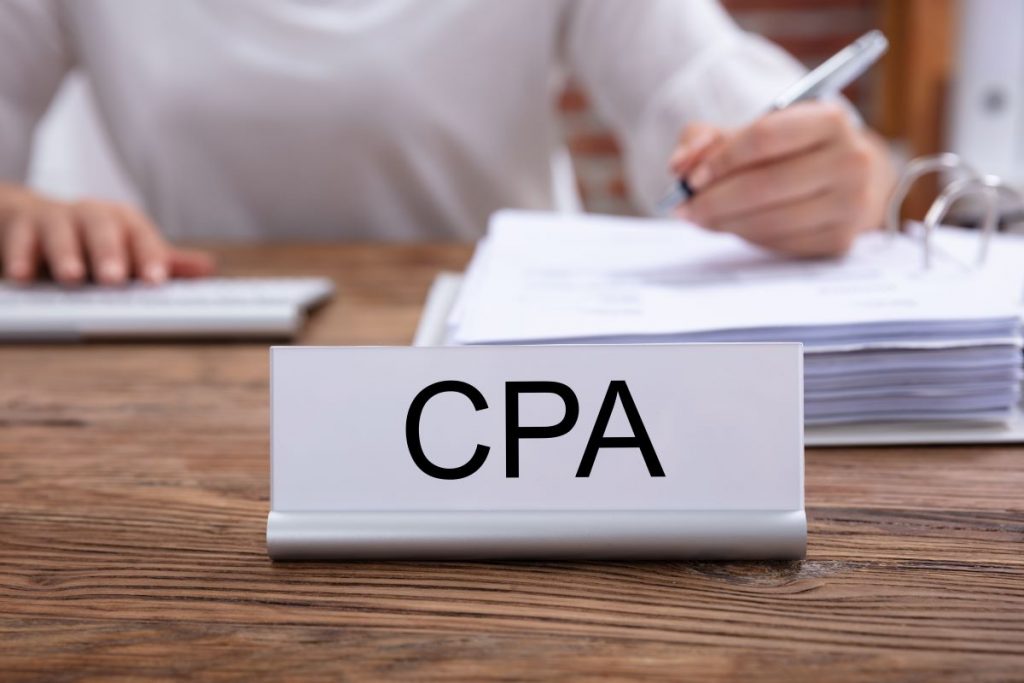The CPA credential is considered the gold standard certification in the accounting profession and takes a few years to obtain. The credential provides CPAs with a diverse range of career path options as a trusted business advisor in a highly respected and prestigious profession. Accounting professionals who want to obtain the CPA credential might be interested in finding out how long it takes to become a CPA. So, we have provided information about what is required to become a CPA and typical time-frames surrounding those requirements below.
Educational Requirements to Become a CPA
Becoming a CPA requires a bachelor’s degree in accounting and 120-150 credit hours of academic coursework from a state-accredited college or university. To meet this requirement, some academic institutions offer both a bachelor’s and master’s degree program in Accounting with a mix of accounting, business, and general education classes that count towards CPA licensure. There are also several other ways to obtain the extra educational units that don’t require completing a master’s degree, such as by enrolling in an MA, MBA, or 5 year integrated BA/MA program. Or, you may be able to attain the extra units through a minor, BA elective courses, or through community college classes.
The time needed to complete educational requirements:
120 to 150 credit hours is equivalent to 4 to 5 years of higher education.
CPA Exam Requirements to Become a CPA
Becoming a CPA requires successfully passing the Uniform Certified Public Accountant (CPA) Examination. The CPA Exam is developed by both the Association of International Certified Professional Accountants (AICPA) and the National Association of State Boards of Accountancy (NASBA) with help from the state boards of accountancy. The CPA Exam is an exam to assess the knowledge and skills newly licensed CPAs (nlCPAs) need to practice public accountancy. The CPA Exam is a comprehensive test composed of four sections, given individually, over a total of 16 hours, and must be completed within an 18-month window. The four exams cover a wide variety of topics taught in most university accounting programs.
The time needed to sit for the CPA Exam:
16 hours completed within an 18-month window
Experience Requirements to Become a CPA
Many states require that CPA candidates complete a certain number of hours working under a licensed CPA professional and also require that candidates take Continuing Professional Education (CPE) hours. The good news is that work experience before, during, and after passing the CPA Exam counts towards the CPA licensure experience requirement, as long as it was done under the supervision of a licensed CPA. Many states count internships and/or part-time work hours as part of this requirement. If candidates need help with the experience requirements, they can contact NASBA. NASBA provides an Experience Verification service on their site.
The time needed to complete experience requirements:
1 to 2 years of relevant experience (determined by state)
Ethics Requirement to Become a CPA
Many states require CPA candidates to complete an ethics course or ethics exam before obtaining licensure. However, the ethics requirement is determined by each State Board of Accountancy. If your state requires the ethics exam, it is typically taken after passing the CPA Exam.
The time needed to complete ethics requirement:
Varies with each state that requires the ethics exam
Becoming a CPA might not be the easiest endeavor you come across because of the time required to obtain licensure and overall cost, but the sacrifice comes with unlimited rewards and successes. In the end, surviving the CPA credential comes down to determination and perseverance. If you can keep the right attitude, maintain balance in your life, and keep yourself focused, you’ll be setting yourself up for future success.
